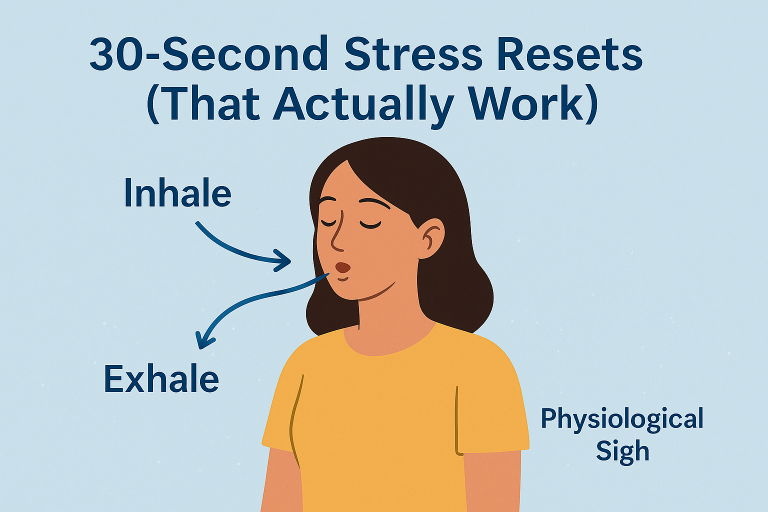In today’s world, the words “gut health” are very prevalent.
It is no secret that we all have a microbiome, or our own personal mix of bacteria living in our intestines– and those microbes can affect everything from mood to immunity.
But what exactly does gut health mean? Is it just about having plenty of fiber? What causes problems with your gut? And more importantly: how do you get healthy again if something goes wrong inside your body’s second brain (the gut)?
The gut has been called the “second brain” because of its vast influence on our bodies. Some scientists say that it is even more important than your first brain (the head) in terms of health and well-being.
So what do you need to know about gut health? Read on for all the answers– from how foods affect us to why we’re talking a lot about probiotics these days!
What is gut health?
The gut is an oft-overlooked and often neglected organ, but it plays a vital role in the body’s overall health.
The World Health Organization defines gut health as a state of physical and mental well-being in which there are no GI complaints that require medical consultation, bowel diseases, or confirmed bowel disease.
There’s much to learn about gut health beyond this definition but understanding how diet affects your digestive system can be essential for overall wellness.
While it is not easy to define what gut health means, the five criteria have been described as a more objective definition of gut health.
These include “healthy levels of your microbiome,” which are responsible for releasing vitamins and enzymes that help in digestion; having a balanced pH level or not containing too many pathogens such as E. coli and yeast; being free from inflammation because this can lead to additional problems like cancerous cells in the intestines; having adequate blood supply, so there’s no risk for obstruction, and having a diverse population of gut bacteria.
Why do we need to take care of our gut?
Gut health is an integral part of overall health. If your gut is in good shape, you will have a better chance of maintaining a healthy weight and avoiding certain diseases caused by poor microbiome diversity.
The gut contains more than just bacteria: viruses, fungi, and other microbes like yeast are also present. The human body has about 100 trillion microorganisms living inside it. These organisms play vital roles in the digestive process and help maintain our immune system and keep our bodies healthy.
If individuals have a poor microbiome diversity, they are at risk for many health-related problems like obesity, diabetes, and heart disease.
The gut, the digestive system, is a microcosm of the body, and it’s where bacteria live and fight for dominance. Scientists don’t know if it’s possible to affect your health risks by altering your gut bacteria or if existing diseases influence how well you can maintain good bacteria.
Overall, they recommend eating more fiber-rich foods like vegetables and whole grains because they encourage healthy levels of friendly bacteria in your gut.
What are the signs of a healthy gut?
The gut is home to trillions of bacteria that work to keep you well. A healthy gut has a diverse diet, regular exercise, and sleep. Knowing what signs to look for and symptoms to watch out for can help you determine if your gut is healthy or not.
Gut health is vital because it’s a sign of overall good gut balance. A healthy gut is also beneficial for the body, as that means there are no toxic substances in the digestive tract which can lead to other problems like heart disease or diabetes.
There are many signs of having a healthy gut, including having a proper amount and variety of bacteria, not being exposed to antibiotics regularly (which can cause diarrhea), and taking probiotics daily.
What are the signs of an unhealthy gut?
A healthy gut has a diversity of microbes and is not dominated by one particular microbe. A healthy gut’s composition is not the same as that of an unhealthy gut, but both have similar characteristics.
A sign that something could be wrong with your gut health might include symptoms like diarrhea, fatigue, bloating, stomach pain, or constipation.
Bacteria in our digestive system can cause problems like autoimmune conditions, depression, and migraines when they become out of control. Luckily there are ways to help prevent these issues to live happy lives with healthy guts.
Skin irritation
A damaged gut can cause skin irritation. Eating a poor diet or having food allergies may cause increased inflammation, leading to eczema.
Autoimmune conditions
Autoimmune conditions develop when the body’s immune system mistakenly attacks healthy cells and tissues. It is believed that an unhealthy gut may lead to inflammation in the body and autoimmune disorders. Autoimmune diseases are relatively common, affecting approximately one in every five people in the United States. The most common autoimmune diseases are lupus, rheumatoid arthritis, multiple sclerosis, and thyroiditis.
Food intolerances
Food intolerance is a result of difficulty digesting certain foods. There is evidence that food allergies may also be related to gut health, but this relationship has not been proven yet. Food intolerances can cause symptoms like abdominal pain and bloat.
You can try eliminating common trigger foods to see if your symptoms improve, such as dairy and gluten. Some people choose to take probiotic supplements to boost the beneficial bacteria in their gut, but you must consult a doctor before doing so for medical reasons.
Fermented foods provide a natural source of probiotics. Fermented vegetables are healthy and help improve gut health. Miso, kimchi, kefir, tempeh are some examples of fermented vegetables that people can eat to benefit from fermentation.
Ways to restore your gut health
Gut health is an essential part of your body, and it’s a multilayered organ that helps with digestion, absorption of nutrients, and immune system function. You need to maintain healthy gut bacteria to keep it functioning correctly, which can be achieved by eating plenty of whole foods like vegetables, fruits, and nuts and taking probiotics daily.
It also impacts how you feel physically because it regulates hormone levels throughout your life cycle, so if there are any changes in how you feel, it’s likely to be due to a change in your gut health.
The gut comprises the gastrointestinal tract, which consists of the mouth, esophagus, stomach, small intestine, and large intestine. The gut also contains your liver and gallbladder. It is directly connected to your immune system and has an essential role in digestion and the absorption of nutrients from food.
A healthy gut is vital for many reasons. It’s been proven that a microbiome can affect your overall health and mental well-being, as it plays an integral role in the way you digest food. Frequently, people who eat unhealthily and don’t exercise enough lack fiber intake, which leads to digestive issues such as gas and bloating. If this sounds like something you may be struggling with, then try implementing these five steps into your diet:
- Limit smoking
- Limit alcohol consumption
- Limit dairy and red meat intake
- Restrict processed meats and refined sugars
- Increase your fiber intake.
A healthy lifestyle can help improve a person’s gut health by following certain healthy habits, such as eating foods high in fiber or taking probiotics regularly. It is also important to avoid unnecessary medications and talk to your doctor about how they are affecting your gut health.
Keeping a food diary is how individuals can track their intake of healthy foods and increase fiber consumption to maintain good gut health. Most Americans don’t meet the guidelines for fiber intake needed for optimal gut function because they eat processed foods with little or no fiber content.
Stress levels
Stress isn’t just in your head; and it can also be experienced as physical symptoms like butterflies you feel when you’re excited or anxious. Research suggests the gut-brain connection exists and that people with mental health disorders are more likely to experience digestive issues.
Regular exercise is a great way to help improve your gut health and reduce stress. The keyword here is regular – you should be sure that you are spending time with family or friends at least once per week!
Sleep
Gut damage can lead to sleep disturbances, mood disorders, and other types of gut disorders such as fibromyalgia.
In recent years, sleep disturbances have been linked to an increased risk for fibromyalgia. Animal studies demonstrate that sleeping irregularly and having disturbed sleep has adverse outcomes on gut flora, which may increase the probability of developing inflammatory conditions in adults.
It is important to prioritize getting at least 7-8 hours of uninterrupted sleep per night. If you have trouble sleeping, your doctor may be able to help out with natural remedies such as herbs and supplements.
Eat slowly
It is recommended that you eat slowly, as it may help promote complete digestion and absorption of nutrients. Eating a vegetarian diet has been associated with improved gut health. Vegetarian diets can be beneficial for the digestive system and help prevent intestinal diseases like irritable bowel syndrome, Crohn’s disease, ulcerative colitis, and others by promoting the growth of healthy bacteria in the gastrointestinal tract.
Prebiotic
Prebiotics are nondigestible carbohydrates and help feed the beneficial bacteria in your gut that can improve gut health. Prebiotics also come from certain foods, such as prebiotic-rich vegetables and fruits.
A prebiotic or probiotic supplement is an excellent way to restore good gut health.
Some prebiotic-rich foods include asparagus, bananas, chicory, Jerusalem artichoke, and onions. These are great for gut health and help maintain a healthy microbiome in the body.
Probiotic
Probiotics are supplements that contain live bacteria. They may help ease digestive health issues, and they may be helpful when your body is not in a state of balance. It’s essential to choose the right quality and quantity of probiotics for your needs and choose foods with probiotics you enjoy eating.
Although probiotics are considered safe, they’re not regulated by the FDA and may not contain the amounts listed on their label. Furthermore, many people rely on supplements for a healthy diet instead of naturally occurring bacteria in food.
Final thoughts
Gut health is a new concept that has been gaining much attention in recent years.
The American Society first introduced Microbiology to help explain how our gut affects our physical and mental health. Still, the idea quickly caught on with people looking to adopt healthier lifestyles as well.
Hopefully, this article helped you learn what gut health means and gave you valuable tips on improving your diet and lifestyle to get all the benefits associated with it.
If you have any suggestions on this topic – please let me know in the comments.




